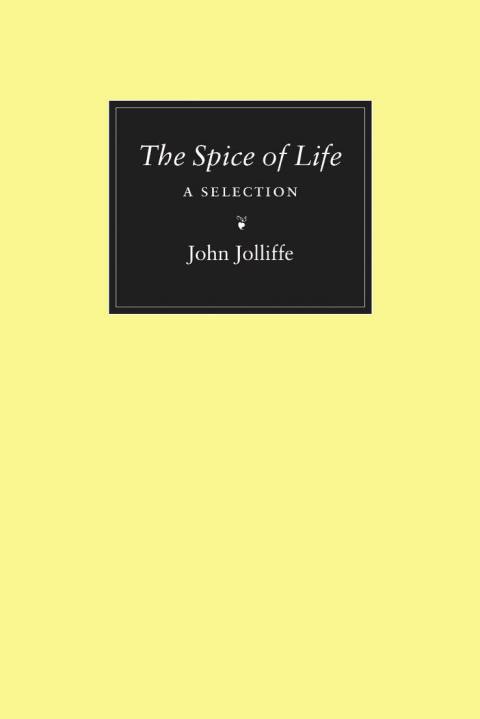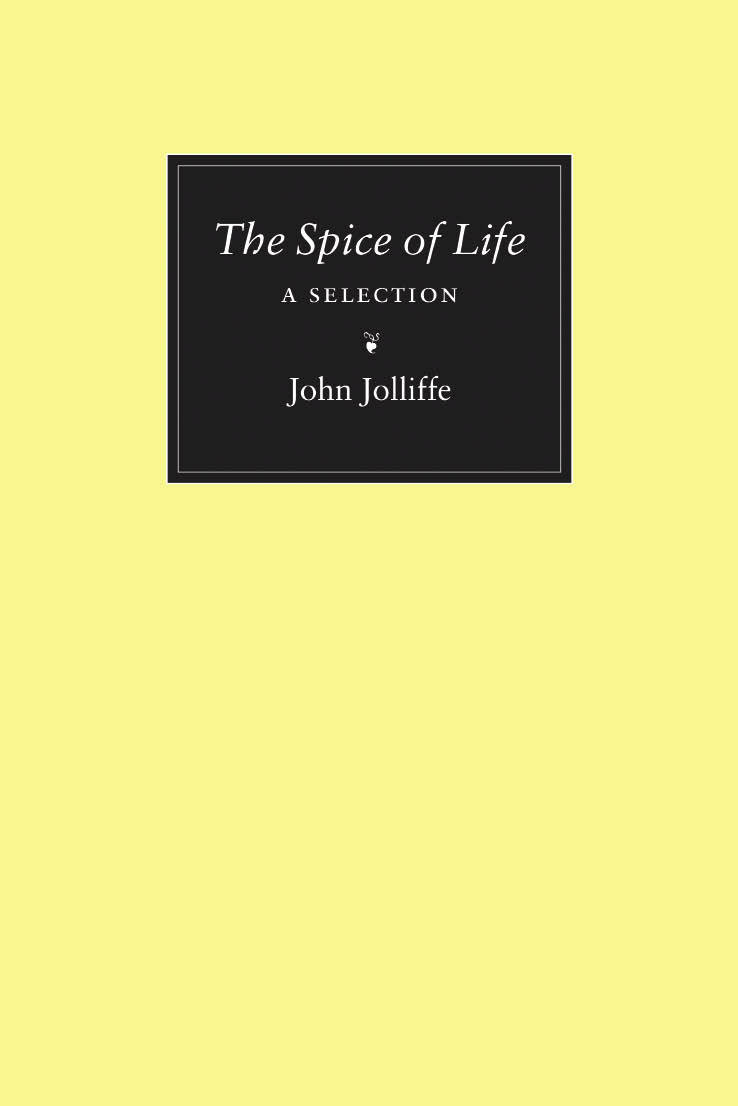This book falls into two distinct parts. The first is the author’s account of his own life until he left Oxford in disgrace. John Joll- iffe, the son of Lord Hylton, passed his childhood and youth at Mells, in Somerset, the home of the Asquith family, and at neighbouring Ammerdown, the seat of the Hyltons. Children in large houses were shoved upstairs to the nursery. In his father’s world, Jolliffe writes, the gap between generations ‘was deep in a way that would be unthinkable today, where parents and children live at such close quarters from the start’. This may have been a sea-change in the mores of the upper class, but the less privileged have lived at such close quarters for centuries.
His description of everyday life at Eton will fascinate those unfamiliar with that peculiar institution. He received an excellent intellectual training in the classics, but he found the process tedious and demoralising. Both at Eton and Oxford he seems to have lacked the guidance of a tutor who could inspire him, just as he had found no help with life’s problems from his conventional and reserved father. At Eton he acquired that suspicion of liberal progressives which was to mark his life. The headmaster, Robert Birley, was one such progressive. He became for Jolliffe ‘the most long-winded man at Eton’. Arriving at Christ Church, he professes to have found the Oxford of the 1950s an innocent place: no drugs, no promiscuous sex, but orderly, respectably dressed students and an upper class still enjoying the last of the deb dances. Alas, the more raffish members of the smart set brought disaster on themselves by indulging in the vices of the ancien régime: drinking and gambling. Lapsing into laziness, Jolliffe obtained a third-class degree and was sent down for a minor disciplinary peccadillo. Neither Roy Harrod nor myself could save him from dons who, as I appear to have told one of them, behaved as weak men pretending to be strong.
The second part of this book consists of a skilfully crafted, miscellaneous collection of remarkable people. They include a regiment of powerful women, from Elinor of Aquitaine, wife of Henry II, to the formidable and outspoken Violet Bonham Carter. Monarchs run from Charles II of England to Francis II, the last Bourbon King of Naples — for Jolliffe a benevolent despot, but to Gladstone the negation of God who should be driven from his throne. If you weary of politicians — Jolliffe regards the present lot as ‘time-serving midgets’ — there are crack shots like Lord Ripon. My favourite is the great naturalist, the Reverend Gilbert White of Selborne, an eccentric to his parishioners with his obsession for planting melons.
Jolliffe’s galaxy includes Czech composers, and novelists, from Anthony Powell who, as a critic put it, ‘succeeded brilliantly in recapturing the boredom of life’, to Yevgeny Zamyatin; the latter, a revolutionary, disabused by the betrayal of October 1917, wrote to Stalin for permission to go abroad — given that ‘the literary servility and fawning [demanded by the regime] are equally degrading to authors’. There are artists like Daumier and Baroque architects. Two deeply felt essays concern Leonard Cheshire VC, whose work for the homeless and disabled, Jolliffe suggests, deserved immediate canonisation as a saint and a statue on the vacant plinth in Trafalgar Square, and the poet Roy Campbell, the scourge of the invertebrates of Bloomsbury and leftist poets like Auden and Spender who, during the Spanish Civil War, were on the side of burners of churches and the murder of priests and nuns.
Both Cheshire and Campbell, it must be noted, were Catholic converts. For Jolliffe, a militant Catholic, the difference between good and evil is absolute. The ‘inhuman system of communism’ preserves itself by ‘falsifying history’. Those who question the falsehood end up in gulags or before a firing squad. The dissidents who escaped this fate deserve the support of the democratic West. Yet at the conference of Yalta, in the last days of the war, Churchill and Roosevelt not only handed eastern Poland over to Stalin’s mercy but also allowed thousands of Cossacks, Caucasians and Ukrainians to be forcibly repatriated to the Soviet Union. ‘I do not hesitate’, writes Jolliffe, ‘to accuse the British government and their advisers of merciless inhumanity.’ Churchill and Macmillan were not inhuman monsters; Alistair Horne, in his biography of Macmillan, shows the pressures under which they acted as they did. Only those, like Jolliffe, who look at the political world from the outside, can indulge in such outbursts of righteous indignation.
What was as bad, for the rightist philosopher Roger Scruton, Jolliffe’s friend as the sworn enemy of political correctness, was the hypocrisy and feebleness of progressive leftists who turned a blind eye to the communist enslavement of Eastern Europe. Jolliffe set about organising a memorial to the Ukrainian innocent victims of Yalta which stands opposite the Victorian and Albert Museum. It will afford him a modest niche in the history of our terrible times.
Jolliffe’s book reviews are challenging and readable. I relish his distaste for the apostle of ever greater union, Jean Monnet, with his attempt to bamboozle the nationalities of Europe into accepting the extinction of their unique cultures in a federal superstate. Alas, on most issues Jolliffe and myself inhabit different worlds, our differences rooted in our interpretations of the 18th-century French Enlightenment. For Jolliffe, in the short run, it led to the Jacobin Terror and the despotism of Napoleon; in the long run to the materialist, godless society in which we all now live. For me, the legacy of the Enlightenment is ambiguous. Its heirs included that cold fish Robespierre. It also produced men who liberated the human spirit, and detested cruelty in all its forms.






Comments